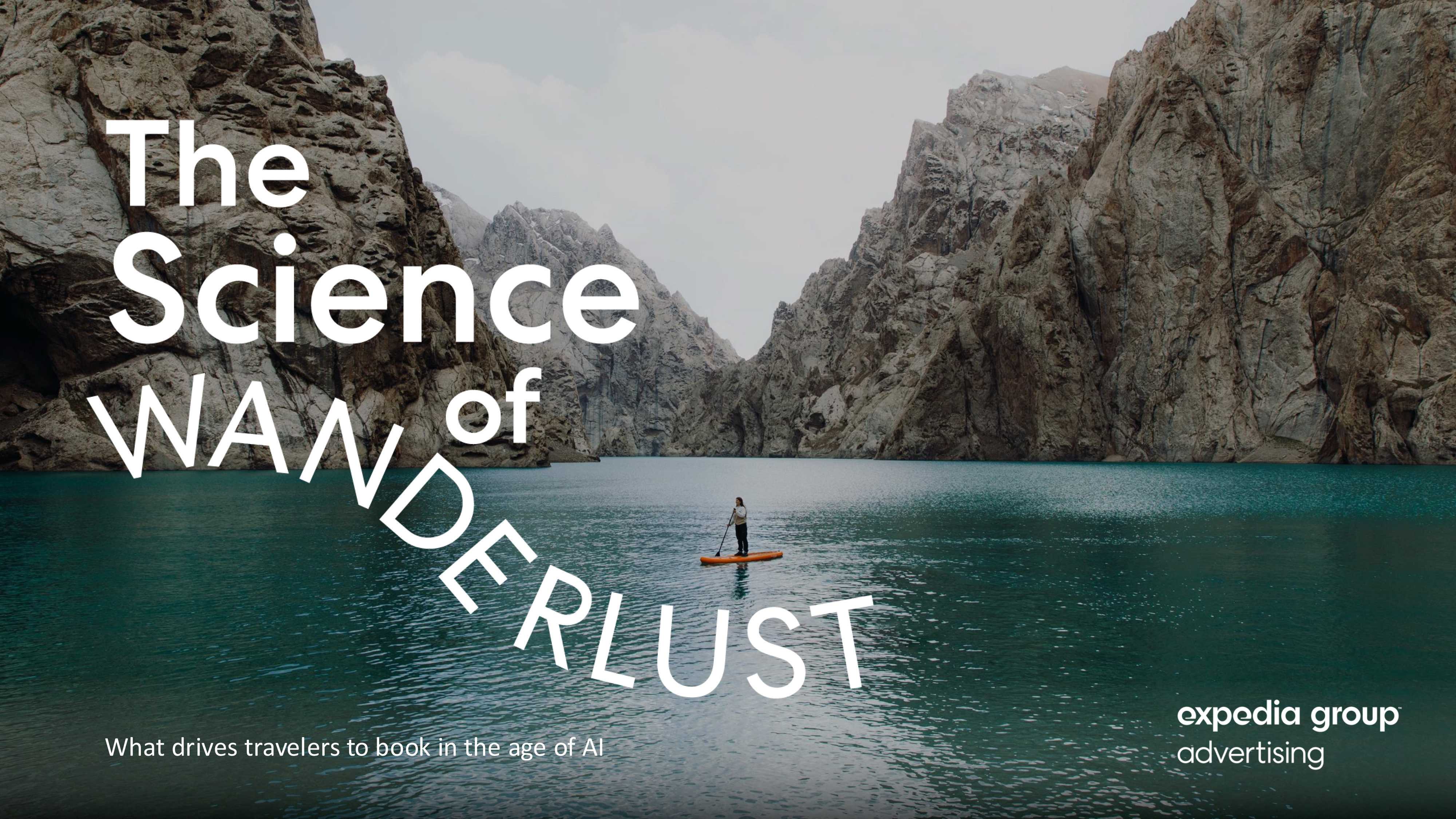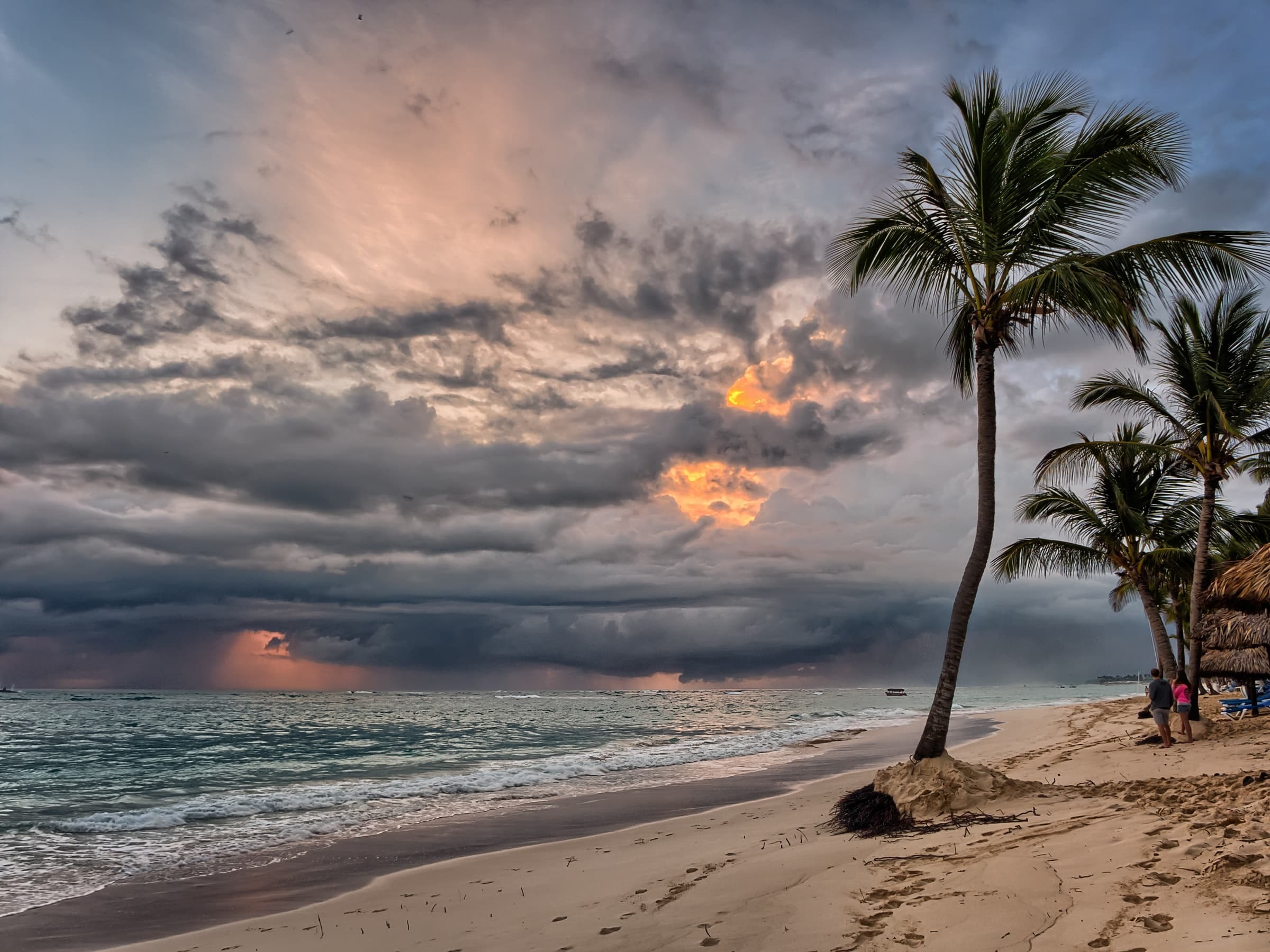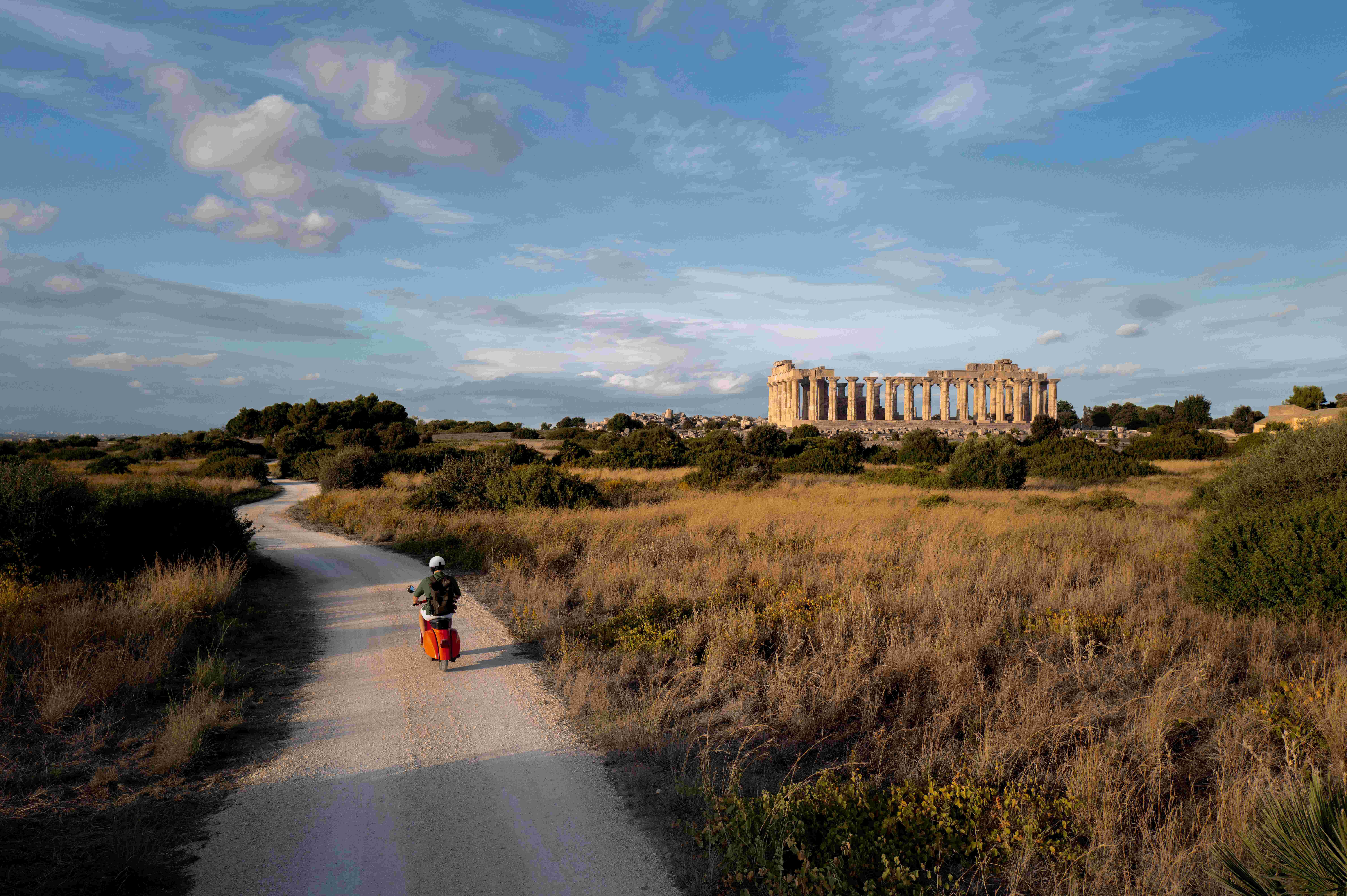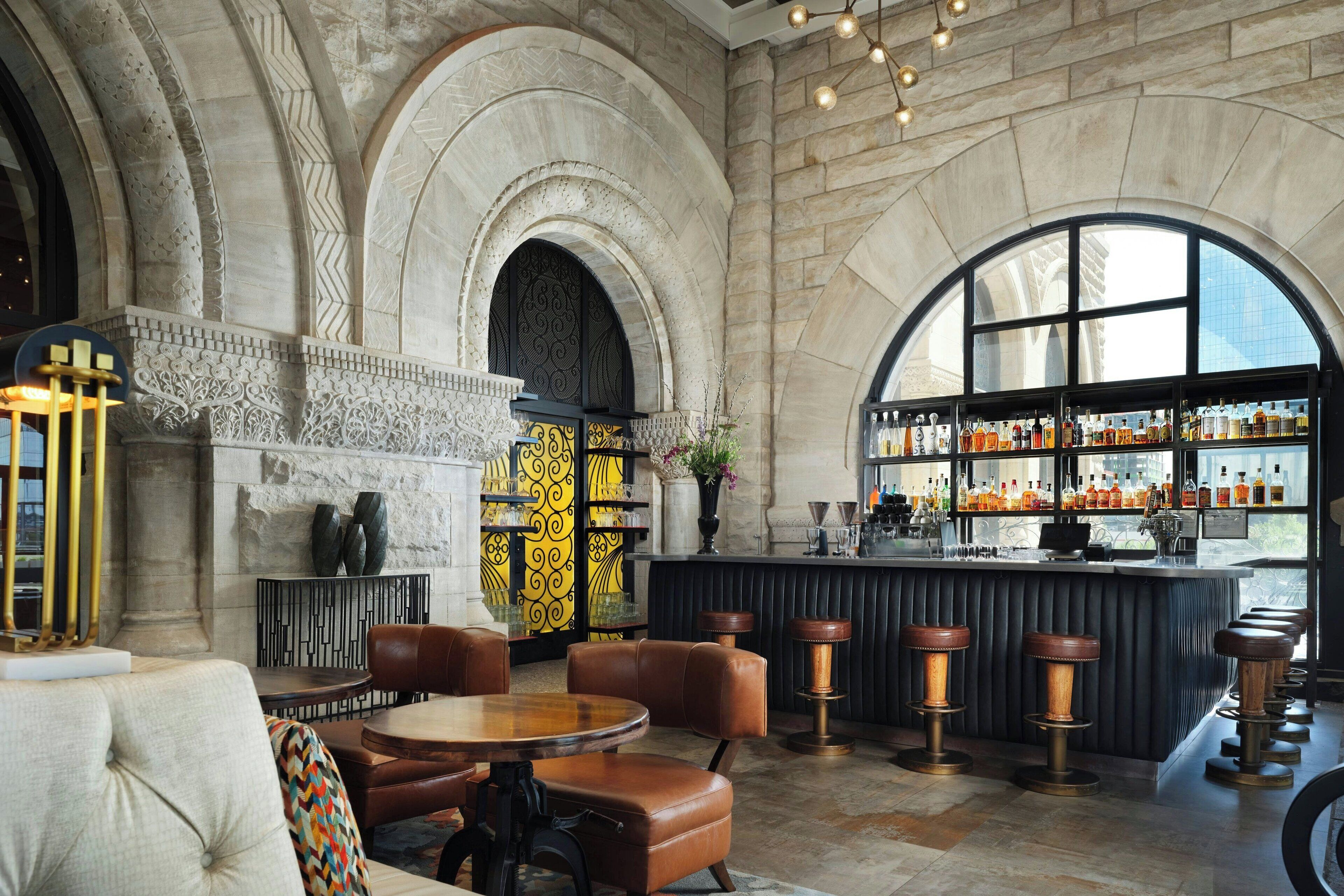Video Overwhelmingly Influences Travel Booking Decisions Over Static Images
Travelers See Value in AI-enhanced Content but Human Input is Still Critical
Younger Generations Feel the Most Emotive Towards Travel Content Compared to Older Generations
Expedia Group Advertising today released comprehensive findings from The Science of Wanderlust research, uncovering what makes the perfect travel content to drive bookings in today’s world of AI. The study showcases how travelers feel, react and engage with travel-related content, finding six ingredients that spark the feeling of wanderlust – the emotional spark that drives travel decisions – to help brands inspire, connect and convert travelers.
What really sparks wanderlust?
- Video influences nearly three times more than static images and sparks emotion: 71%1 of travelers say video influenced travel decisions vs. 24% static images; long-form videos spark the most emotion.2
- Authentic tones create trust: Travelers selected tones of transparency (52%), followed by clarity and confidence (46%), and authenticity (45%) as tones that built the most trust.3 Authentic, user-generated content was also important.
- Clear narrative and structures drive engagement: Travelers are most engaged with content that has a clear opening, engaging middle, and clear call to action to close. Even beautiful visuals failed to deliver when the messaging was not clear.
- Optimal visual timings build comprehension: 2 to 9 second scenes allowed participants to optimally see and absorb images and content. Fast cuts and rapid scene changes (less than 2 seconds) prevented participants from understanding the narrative and the destination.
- AI-enhanced vs AI-generated: 41% of travelers say they feel AI-generated content is useful, but needs to be combined with human input, while only 16% of travelers don’t mind how the content is created as long as it’s useful.
- Representation and relatability counts: when people see themselves represented, the content is more relatable and memorable, with 34% saying inclusive messaging made them trust a travel brand.
“In a world flooded with travel content, knowing what truly moves travelers from dreaming to booking is a game-changer for brands operating within the highly fragmented travel media ecosystem”, said Rob Torres, Senior Vice President, Expedia Group Advertising. “Our Science of Wanderlust research reveals the six key ingredients for creating effective travel content, including that video influences booking decisions nearly three times more than static images – providing travel marketers with a clear roadmap that both informs and inspires action.”
The study also showed some generational divides in content preferences. Younger generations feel the most emotive – both positively and negatively – towards travel content compared to calmer Gen X and Baby Boomers. Younger generations also resonate more with videos and influencer content, whereas older generations are more likely to engage with brand messaging, sponsored articles, and guidebooks.
Sentiment towards AI in travel content
The study also found nuances in consumer sentiment towards AI in travel advertising content and revealed the opportunities available to travel marketers. While there is skepticism around fully AI-generated content, travelers are open to it as a tool to enhance existing content and in other areas of the travel booking journey.
- 64% of travelers say they have noticed a travel advertisement that they believe was generated by AI.
- While travelers feel AI-generated content is useful when combined with human input, they are most excited about the use of AI in smarter deals and budgeting tools (24%) and personalized trip planning (19%).
- Fully AI-generated influencers and landscapes sparked negative emotions, and viewers expressed unease, skepticism, and annoyance.
- Generationally, Millennials are the most comfortable with all uses of AI in travel content followed by Gen Z.
“With so much noise in the industry about AI, privacy, and personalization, we wanted to understand how travelers truly feel about AI and its potential uses in the travel booking journey,” said Torres. “The results show the huge opportunities available to marketers in combining AI with human input when creating content, and give the industry a new playbook for earning trust, keeping attention, and driving bookings.”
Unique preferences by traveler archetype
The survey asked the participants’ preferred trip type. The results showed that each traveler archetype has unique preferences when it comes to travel content, including format, imagery, tone:
- ‘Beach Travelers’ are drawn to view-worthy content that showcases pools, spas and overall relaxation.
- ‘Amusement Park Travelers’ – travelers who like family-focused trips to theme parks or kid-friendly hotspots – like short-form videos and are influenced by social.
- ‘Adventure Travelers’ who like nature-centered vacations in the mountains, forests, and national parks are most influenced by content on YouTube and are more wary of AI.
- ‘City Escapists’ – those who visit major cities with food scenes, nightlife, and entertainment – are most engaged with long-form videos and are drawn to food content.
- ‘Cultural Connectors’ who prioritize historic sites, heritage regions, or local experiences prefer content that amazes them and rely on online travel sites for inspiration.
- ‘Luxury Travelers’ whose preferences lie in high-end resorts and exclusive retreats are comfortable with AI content and are frequently inspired by influencer content.
Expedia Group Advertising is partnering with destination marketing organizations like GoTürkiye, the Bahamas Ministry of Tourism, Investments & Aviation, Jamaica Tourist Board, and VisitPanama, to bring these campaign insights to life. By leveraging Expedia Group Advertising’s travel media network, these partners are creating visually compelling, end-to-end campaigns, designed to reach travelers at every stage of their journey.
To read the full findings, click here.
Methodology
The Science of Wanderlust study comprises packaged insights from across two complementary pieces of research:
- Proprietary testing by EG Labs, evaluating the emotional responses and reactions of global travelers to advertising content through eye-tracking and facial scanning technology and qualitative interviews across two diverse groups of leisure travelers. Research was conducted in July 2025.
- A seven-market survey of 7,000 travelers conducted in partnership with Censuswide examining how traveler personas engage with different formats, platforms, and messaging approaches in today’s advertising media landscape. The survey was carried out in the US, Canada, Mexico, UK, France, Japan and Australia, in August 2025. All participants were filtered to ensure they had traveled for leisure in the past 12 months and seen travel content in the past 6 months that had influenced their decision.





